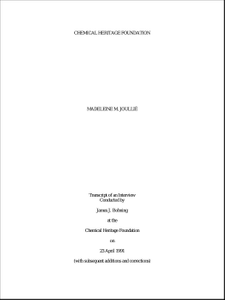Evaluation of Mitochondrial DNA Typing in a Forensically Relevant Population of Self-Identified U.S. African Americans
View
@ Archives & Special Collections, University of Connecticut Library
Description
Analyses of hypervariable segments of mitochondrial DNA (mtDNA) are currently being used for forensic analysis, human molecular genetics, evolutionary biology, human migration studies and recovery operations in identifying deceased persons, both ancient and modern. Mitochondrial DNA analysis offers a unique maternal ancestral view of an individual’s molecular pin code, through typically examining the hypervariable segments and sampling the areas of hypervariable region 1 (HV1) and hypervariable region 2 (HV2). The goal of this project is to revisit the utility of mtDNA typing in forensics through the analysis of a forensically relevant population of self-identified U.S. African Americans. In Chapter 2, we asked whether a similarly low level of resolution of HV1 sequence types in Europeans mtDNA occurred in persons of ‘recent’ African ancestry. Our studies yielded remarkable variation within the mtgenomes of U.S. African Americans and, furthermore, demonstrated that mtDNA analysis, in fact, has a higher power of discrimination when applied to the U.S. African American population (n= 185); a group inadequately represented in mtDNA databases. Chapter 3 describes our efforts in the employment of recent advances in DNA typing technologies (microarray whole genome sequencing, SNP panels) to demonstrate that the mtDNA-coding region increases the resolving power of mitochondrial DNA forensic typing. We used whole genome resequencing to identify diagnostic SNPs (mtDNA variants) that would yield powerful genetic markers into refining the relationship between ethnicity and haplogroup association. Chapter 4 data illustrate that a clear majority (90%) of our samples showed concordance between self-identified ethnicity and haplogroup assignment. In the...
Text
Doctoral Degrees
Reid, Ranyelle SStrausbaugh, Linda DHolsinger, KentO'Neill, RachelUniversity of Connecticut
In CopyrightThese Materials are provided for educational and research purposes only. The University of Connecticut Library holds the copyright except where noted. Permission must be obtained in writing from the University of Connecticut Library and/or the owner(s) of the copyright to publish reproductions or quotations beyond "fair use."










![[James Howard Meredith and wife respond to reporter as they leave the Fifth U.S. Circuit Court of Appeals] [James Howard Meredith and wife respond to reporter as they leave the Fifth U.S. Circuit Court of Appeals]](https://d2l9jrtx1kk04i.cloudfront.net/dd1d17768b584aba2b4d4bdea67f2dd33280b58b.png)










